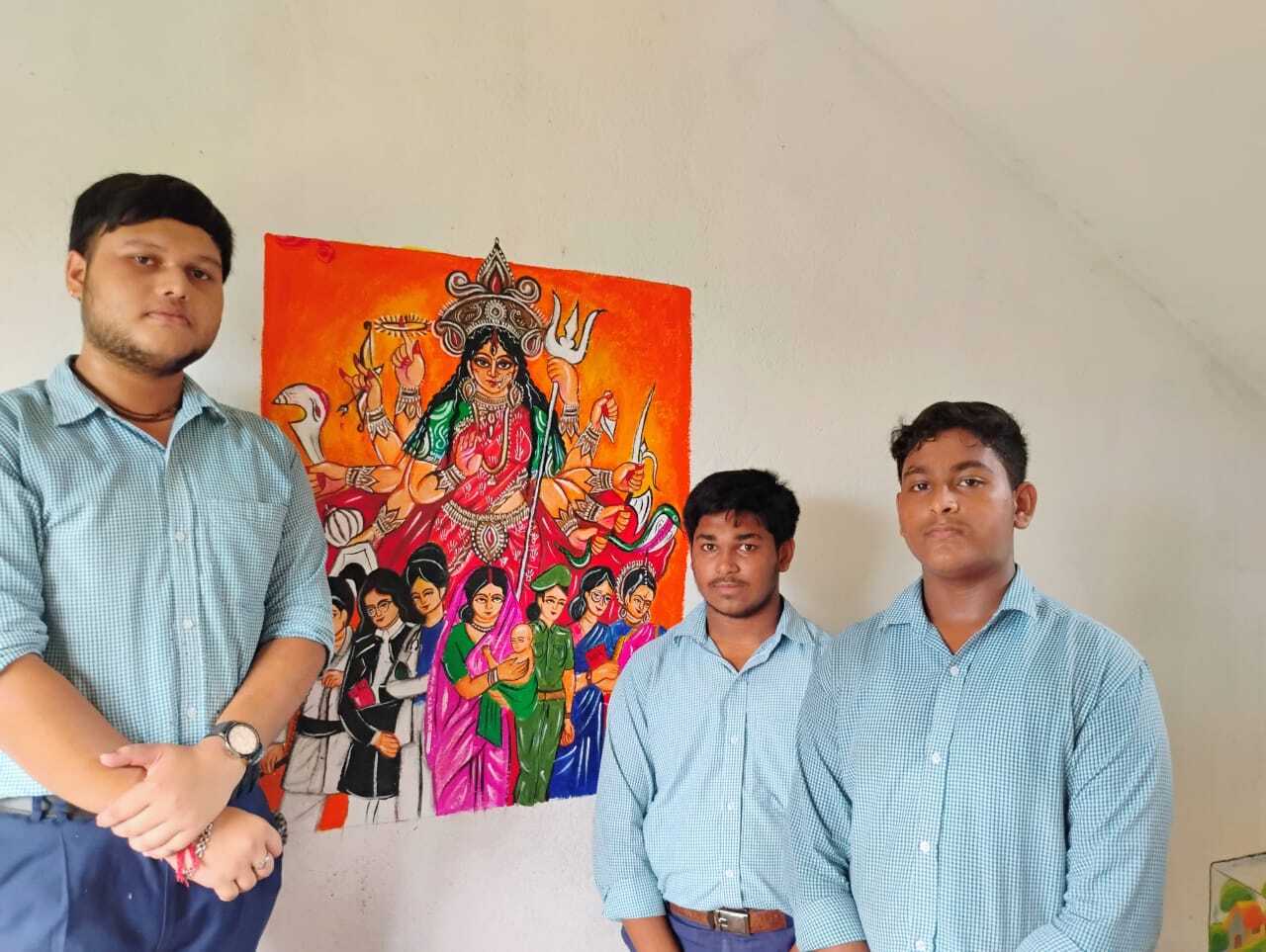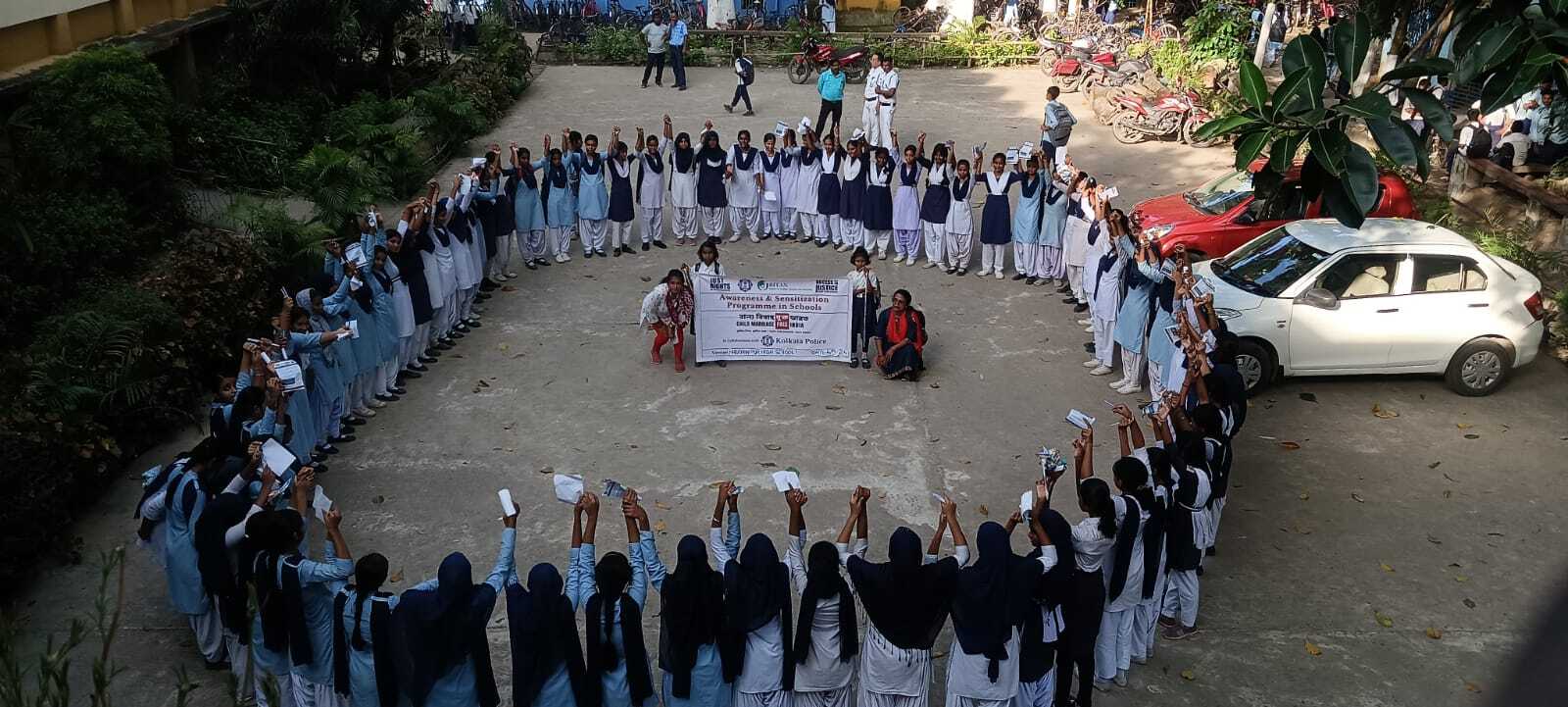“We are surrounded by pollution, and it’s up to us to take action and protect our environment before it’s too late,” says 17-year-old Swastika Ghorai, a Class 11 student at Narayanpur High School. Her words embody the remarkable transformation at the school, once detached from biological concerns, but now a model of sustainability.
Nestled in the lush East Kolkata Wetlands of Bhangar, Narayanpur High School has become a beacon of environmental responsibility, with a host of initiatives aimed at fostering ecological awareness and sustainable practices among its students.
At the forefront of this change is Avijit Dasgupta, the 48-year-old headmaster whose commitment to practical, socially-conscious education has been the driving force behind the school’s shift. With a master’s degree in English and an MPhil in Education, he combines academic expertise with a sense of purpose. His aim is not only to revitalise the academic environment at Narayanpur High School, but also to cultivate the concept of social responsibility among his students.
When Avijit assumed leadership in 2019, the school was caught in the traditional cycle of textbooks and exams, with little connection to the real-world challenges around them. Students were unaware of the pressing social and environmental issues that impacted their community.
For Avijit, education is not just about memorising facts. “It is about preparing students for life, helping them understand the world around them, and equipping them with the knowledge to make a difference,” he tells The Better India.
“I want my students to be more than just passive learners,” he says. “They need to understand the world, engage with its challenges, and gain the expertise to address them.”
Recognising the gravity of local issues like child trafficking, early marriages, and drug abuse, Avijit knew his students had to be prepared to confront these realities. He envisioned a curriculum that extended beyond traditional academic learning to focus on practical problems, especially those impacting their own community.
Shifting education from textbooks to action
Narayanpur High School’s journey towards sustainability began with projects aimed at making conservation-related education more impactful. One of the school’s earliest initiatives was partnering with Kids for Tigers, a programme focused on the conservation of the Sundarbans, located just 70 km from the school.
Through this partnership, students were introduced to the region’s rich biodiversity, with a particular emphasis on the endangered Bengal tiger. “This initiative provided students with a substantial, firsthand understanding of the ecological challenges that surround them, instilling a sense of urgency and responsibility towards protecting their local and global ecosystems,” says Avijit.

The school also joined the Namami Gange Programme, a national initiative focused on cleaning and conserving the Ganges River. Avijit views this as an essential part of fostering environmental responsibility among his students. “Teaching them about the Ganges is teaching them about their own responsibility to the environment,” he explains. “Students are planning to engage with people who live along the ghats, and educate them on the impact of river pollution.”
In addition, the school partnered with ‘Disappearing Dialogues’, a group focused on practical sustainable education. This collaboration allowed the students to take part in experiential projects related to water conservation, waste management, and biodiversity preservation.
“For instance, they learned about water usage patterns and devised strategies to reduce consumption within the school. These initiatives encouraged students to witness how their actions could make a tangible impact on the environment,” Avijit explains.
Working towards a plastic-free school
One of the most notable outcomes of these initiatives was the school’s push toward becoming a plastic-free zone. “When I joined as a headmaster, students were careless with plastic,” says Avijit. “But now, they know better. They understand the impact of their actions on the environment.”
Though the school has reached about 70% of its goal to eliminate plastic waste, the achievement was a major milestone, considering the resistance and lack of awareness that existed when the initiative began.
“I used to be careless with plastic, but now I make sure it goes into the dustbin. I’ve also started teaching my family and friends to do the same. It’s about changing habits, one step at a time,” Anjali Das, a Class 11 student, says.

In 2023, Narayanpur High School received the WIPRO Earthian Award for its outstanding contributions to environmental education. This recognition bolstered the school’s reputation and ignited greater enthusiasm among students. The award not only affirmed the success of the school’s initiatives but also opened the door to more partnerships with local and national organisations.
Avijit proudly states, “We’ve turned the entire school into a living lab.” Students now take part in activities like naming and cataloguing trees, which allows them to engage with nature in meaningful ways.
Riya Ghosh, a Class 11 student, shares, “Through the various programmes, I have learnt that cutting down trees is not an option. I’ve seen these plants and animals in real life, and now I want to show future generations how important they are.”
“We also encourage our students to participate in pottery making, where they craft items from waste materials that can be sold in the market. Through this, we are helping them understand that education can generate employment opportunities,” says Avijit.
He explains, “We hold waste management workshops to equip students with practical skills.” As a result, students have begun actively segregating waste into three separate bins in the school.
From concerns to accolades
Despite the progress, the reformation did not come without challenges. Initially, many guardians were skeptical of the emphasis on environmental education, fearing it would detract from traditional academic learning.
“Initially, the guardians were not very supportive when they saw their children participating in cleaning activities,” Avijit recalls. “They were worried that environmental initiatives would disrupt regular academic progress.” But Avijit remained steadfast in his vision.
He recognised that engaging students with practical, community-focused issues would empower them in ways traditional textbooks could not. “Textbook learning is one-dimensional,” he opines.

Over time, as students began to show the real impact of their efforts, the community’s perspective began to shift. “Now, guardians aren’t just supportive, they’re actively involved,” says Avijit. What began as a cautious response transformed into wholehearted participation.
The school’s environmental initiatives have garnered significant recognition. In 2024, Narayanpur High School was awarded the Swachhta Hero 2024: Guardians of Our Rivers award for its contributions to environmental conservation. This prestigious honour, along with the WIPRO Earthian 2023 award, reinforced the importance of the school’s environmental efforts and encouraged students to continue advocating for change.
It’s not just about reading facts in textbooks anymore
Looking ahead, Avijit has ambitious plans for the future. He envisions creating an exhibition to showcase the school’s waste management projects, where products made from recycled materials will be sold. This project will not only raise funds for the school’s development but also demonstrate to students how sustainability can lead to economic growth.
“I also plan to expand the school’s environmental programmes by involving local schools and NGOs in workshops on waste management and water conservation,” he adds.
Avijit’s leadership is inspired by his father, a dedicated educator who believed that education should make the world a better place. “That’s the legacy I want to continue, teaching students not only to succeed in life, but to make a positive impact on the world.”
Through his efforts, Narayanpur High School has become a model of how education can drive social and environmental change. The ripple effect of these efforts is visible in the community, where students, parents, and local organisations collaborate to build a sustainable future.
As Avijit Dasgupta aptly puts it, “It’s not just about reading facts in textbooks anymore; it’s about taking action.”
Edited by Arunava Banerjee; All photos courtesy Avijit Dasgupta

No comments:
Post a Comment